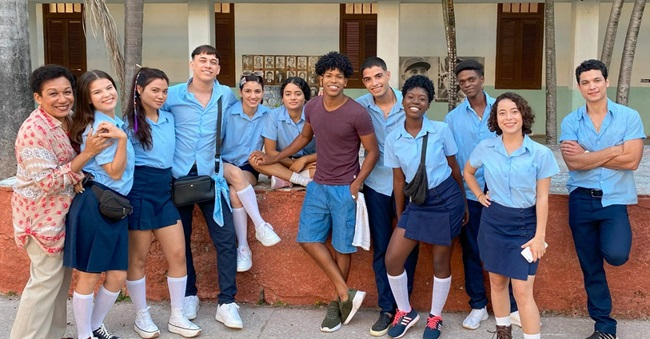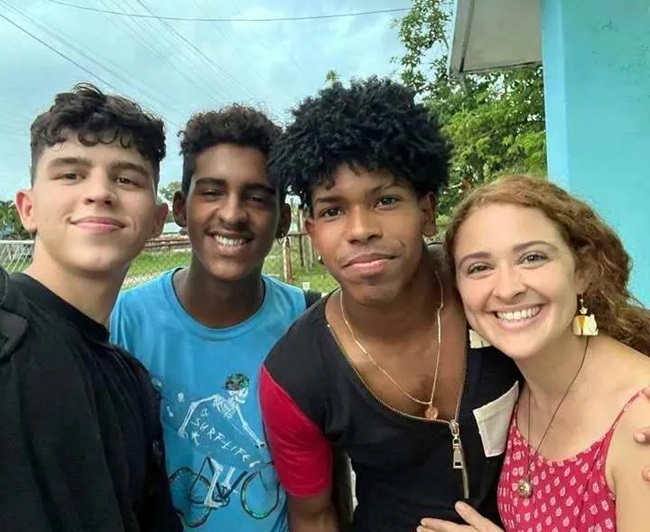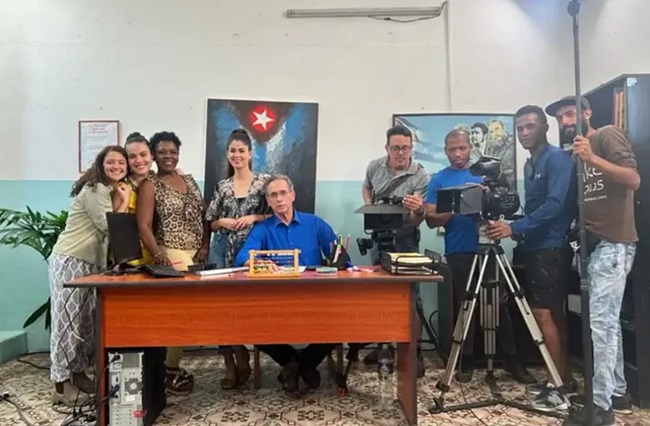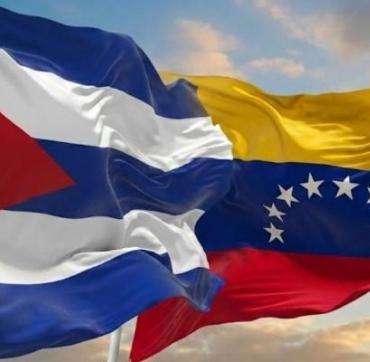Let’s Hope Calendario Doesn’t Lose its Leaves
especiales

More than a week after the last episode was broadcast, even after its unique premiere with a packed Yara cinema, this might seem like a text out of place, out of times.
But I write it precisely now to be consistent with one of the ideas that I present here: the Calendario series should not be one of those installments that fade away in memory, like others, a few days after it’s over.
It's almost certain that during the next Sundays, at the usual time in which this was broadcast, many viewers will feel its absence and it will even be a topic of conversation for families.
But that’s not enough. It would be necessary for Calendario to always be remembered because it has been a good mirror in which to look at ourselves, make us think and feel.

Because when time passes, and children and adults like those represented in that series want to know what we Cubans were like in this first quarter of the 21st century, they would have to look at this television series, whose depth grew with each of its three seasons.
No, of course it’s not a history book; of course, it does not even remotely include all the problems that define us as a society today; but those issues it approached with seriousness, with a respect for reality and its shades, with respect to us, the intended targets, that is well worth stopping over and over again before its proposals, and even using them as study material.
Because Calendario—that is, its scriptwriters, its director, its entire team—said what’s not discussed daily in our press, what’s not heard in events and speeches, what’s not even sometimes mentioned, at least as it is, they did it, in everyday conversation.
Of course, most of the topics it addressed are known to everyone, from the sale of medicines, emigration, diversity in sexual orientation and homophobia, religious inflexibility, the role of social networks in the interests of youth , the uniqueness of families, marginality, poverty, harassment, gender violence and much more.
However, being in the woods and not seeing the trees is more common than one can imagine, and we Cubans, so deep in our complicated daily life, perhaps sometimes we do not stop enough to meditate on the whys, the hows, the when, the who...

That’s precisely one of the successes of Calendario: to make us reflect and, at the same time, teach us. Indeed, just as the main plot of the series is a group of students in their classroom, with their teacher; maybe the series becomes a school in itself, where each of the stories is a learning experience.
And it achieves it as all schools should: appealing to what’s most human in each person, defending singularities, without trying to impose morals and, much less, implanting obstacles in the way of truths, no matter how ugly they may be.
Calendario allows us - and its success depends on it - to question some of the proposed solutions, add, remove, applaud, cry..., while together with its creators, but us in front of the television screens, we keep on building and reconstructing subplots, stories of life, which could resemble ours.

In addition to its excellent making, the performances, the successful rhythm achieved by the edition, and other achievements in terms of production, unrelated to any hint of bad taste - which would deserve a separate comment -, the same thing in favor of this series is don't aim for perfection or "please everyone." Because "I am impure, completely impure," as one of the verses that teacher Amalia recited at the end recalled and that seems to summarize not the justification, but the essence of each character's actions, understanding impure as being imperfect, human, in the end.
It's perceived, sometimes from subtlety, constantly from authenticity and avoiding coined phrases, the embrace to the roots, sometimes from pain, others, from joy. But always subscribing, in the most diverse ways, that, not by chance—nothing is coincidental in this series—they chanted in the final chapter: “you carry an island inside.”
Translated by Amilkal Labañino / CubaSí Translation Staff














Add new comment